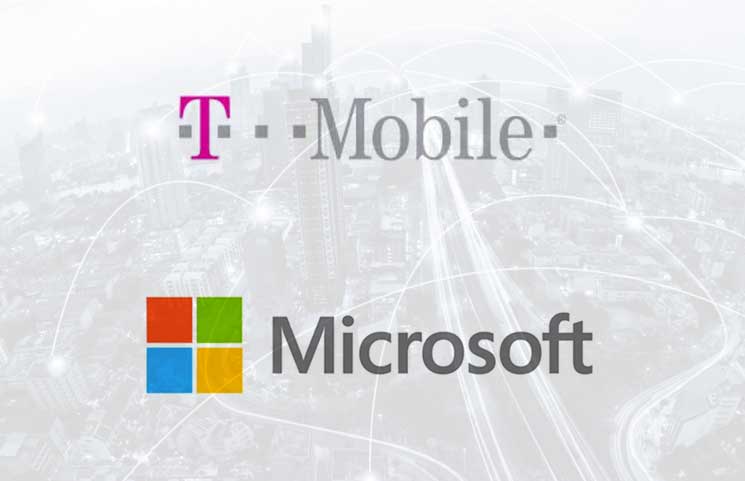
T mobile join together free#
On March 11, it predicted to investors that its free cash flow will be flush enough to support a $60 billion stock buyback within five years. T-Mobile is already prepared to deliver on this prospect. Looking forward, we can expect T-Mobile, AT&T, and Verizon to nestle into a cozy triopoly that returns immense profits to their shareholders. Translation: the era of aggressive price competition in wireless is over. On an investor call in February, CEO Mike Sievert said, “We’ve competed mostly on price in the past, if we’re honest. T-Mobile has also signaled to investors that it has become more like its rivals Verizon and AT&T. Besides hobbling DISH, T-Mobile will degrade the quality of its service this April by automatically enrolling its subscribers into an aggressive, personalized ad-targeting program. Such critiques are well-placed, as the merger has already produced harm and threatens to wreak more damage. These frustrations have fueled heated criticism of the merger. If it was really critical to keep four players in the wireless market-so important that DISH needed to enter-why even let T-Mobile buy Sprint in the first place? Why not just keep the existing fourth player, instead of designing a Rube Goldberg settlement in the hopes that a new player will grow to have the competitive force of Sprint in seven years’ time? Not only was the DISH divestiture ill-devised, but the T-Mobile/Sprint merger never did pass muster under basic logic. We also knew from DOJ’s longstanding Merger Remedies Policy that remedies should not require an entrant like DISH to depend on an incumbent who is a direct rival it makes perfect sense that T-Mobile would rebel against helping DISH grow into a firm that can compete against T-Mobile itself. We knew back in 2011 that T-Mobile and Sprint competed particularly closely in low-cost wireless services.

It should come as no surprise that DISH is struggling in the wireless market, and price-conscious consumers are bearing the brunt of harm from the merger’s fallout.

But for price-sensitive consumers, the forecast is grim: while they could choose between T-Mobile and Sprint before the merger, these dissatisfied customers now effectively face a monopoly provider. T-Mobile’s announcement led DISH CEO Charlie Ergen to denounce the unexpected shutdown as “anticompetitive.” DISH has already warned investors that with the shutdown, its trend of bleeding hundreds of thousands of subscribers may soon turn into a hemorrhage.įor T-Mobile, this is great news, since many of the subscribers ditching DISH are bound to turn to T-Mobile’s own cheap wireless plan.
T mobile join together upgrade#
With T-Mobile’s shutdown, DISH’s customers will have to “ get new devices, new SIMs, or upgrade via software.” DISH now has to take on an unexpected upgrade that will cost hundreds of millions of dollars. In the latest turn of events, T-Mobile announced last month that it would discontinue its CDMA service in January 2022, nearly two years ahead of schedule. The prepaid customers DISH inherited from Sprint disproportionately buy cheap wireless service, which runs on the old CDMA standard used in 3G networks.

Not even two years later, Delrahim’s plan is already falling apart. While DISH worked on its complex nationwide build, it could serve its customers by paying for them to roam on the new T-Mobile’s infrastructure for seven years. DISH would then use these cell sites and its pre-existing spectrum, augmented from the divestiture, to build its own wireless network using never-before-deployed technology. These assets included Sprint’s 9.3 million prepaid subscribers, its Boost brand, its 800 MHz spectrum licenses, and the Sprint stores and cell towers that the new T-Mobile did not want.

Here was his plan: Sprint would sell its prepaid-wireless assets to DISH. To effect the latter, then-AAG Makan Delrahim devised a divestiture that would reposition satellite-TV provider DISH as Sprint’s replacement. When the Trump-era DOJ allowed T-Mobile and Sprint to merge in July 2019, it promised the best of both worlds: consumers would benefit from T-Mobile’s accelerated 5G deployment and retain a fourth wireless provider. To guard against repeating the mistake of T-Mobile/Sprint, we need a strengthened structural presumption, one that statutorily instructs flipping the burden of persuasion to defendants and requires “clear and convincing evidence” to be rebutted. This merger will be responsible for transferring billions of dollars in wealth from average Americans to the T-Mobile/Sprint shareholders. The Trump-era DOJ’s decision to allow the T-Mobile/Sprint merger will go down as one of the worst merger-enforcement mistakes in decades.


 0 kommentar(er)
0 kommentar(er)
